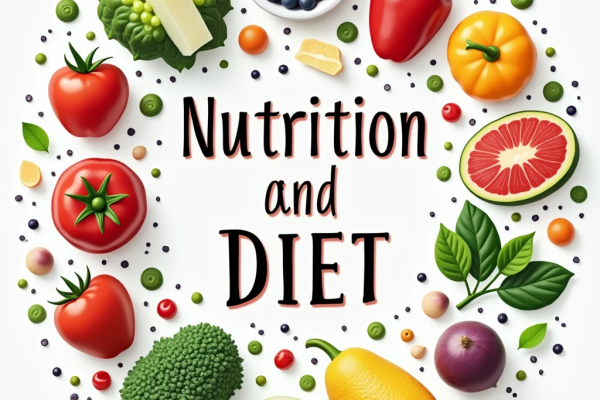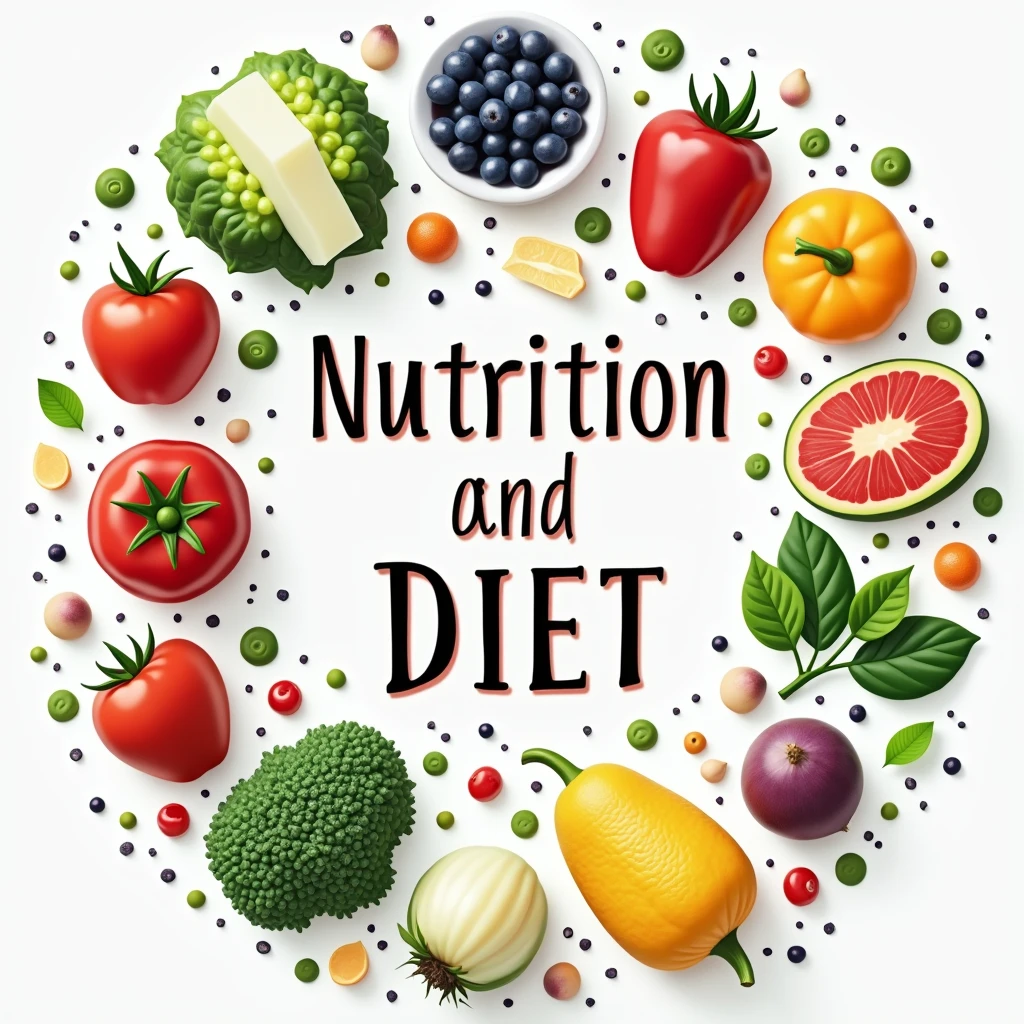

Introduction
Nutrition and diet play critical roles in maintaining overall health and well-being. The food we consume has profound effects on our physical and mental health, influencing everything from our energy levels and mood to our risk for chronic diseases. This article explores the fundamentals of nutrition and diet, the importance of balanced eating, and practical tips for improving dietary habits.
What is Nutrition?
Nutrition is the science that studies the interactions between living organisms and the substances they consume for sustenance. It encompasses the process by which the body takes in food, absorbs nutrients, and excretes waste. Good nutrition is essential for growth, development, and optimal health.
Key Nutrients
- Carbohydrates: The body’s main source of energy, found in foods like grains, fruits, and vegetables.
- Proteins: Essential for building and repairing tissues, proteins are found in meat, dairy, legumes, and nuts.
- Fats: While often misunderstood, healthy fats (such as those from avocados, nuts, and olive oil) are crucial for brain health and hormone production.
- Vitamins and Minerals: Micronutrients that support various bodily functions, including immune health, bone strength, and energy production.
- Water: Essential for hydration, digestion, and nutrient transport.
The Role of Diet in Health
A balanced diet is vital for achieving and maintaining optimal health. It provides the necessary nutrients the body needs to function effectively and helps prevent various health issues.
Benefits of a Healthy Diet
- Weight Management: A balanced diet helps maintain a healthy weight by providing the right amount of calories and nutrients.
- Chronic Disease Prevention: Proper nutrition can reduce the risk of chronic diseases such as heart disease, diabetes, and certain cancers.
- Improved Mental Health: Nutritional choices can influence mood and cognitive function, impacting mental health and well-being.
- Enhanced Immunity: A well-rounded diet supports a strong immune system, helping the body fend off infections and illnesses.
Understanding Dietary Patterns
Dietary patterns refer to the overall combination of foods and drinks consumed over time. Recognizing and adopting healthy dietary patterns is crucial for long-term health.
Common Healthy Dietary Patterns
- Mediterranean Diet: Emphasizes fruits, vegetables, whole grains, fish, and healthy fats, particularly olive oil. It has been associated with lower risks of heart disease and improved longevity.
- DASH Diet: The Dietary Approaches to Stop Hypertension (DASH) diet focuses on reducing sodium intake and emphasizes fruits, vegetables, whole grains, and lean proteins to lower blood pressure.
- Plant-Based Diet: Centered around whole, plant-based foods, this diet promotes health through increased fiber and reduced saturated fat intake.
- Paleo Diet: Based on the presumed diet of Paleolithic humans, it includes whole foods like meat, fish, fruits, and vegetables while excluding processed foods, grains, and dairy.
The Importance of Balanced Eating
A balanced diet includes a variety of foods from all food groups to ensure adequate nutrient intake. Here’s how to achieve a balanced diet:
1. Portion Control
Understanding portion sizes is essential for maintaining a healthy weight and preventing overeating. Using smaller plates, measuring servings, and being mindful of hunger cues can help.
2. Diverse Food Choices
Incorporate a wide range of foods in your diet, including different fruits, vegetables, whole grains, proteins, and healthy fats. This diversity ensures you receive all essential nutrients.
3. Limit Processed Foods
Processed foods often contain high levels of added sugars, unhealthy fats, and sodium. Focus on whole, minimally processed foods for better health outcomes.
4. Stay Hydrated
Drinking enough water is vital for digestion, nutrient absorption, and overall health. Aim for at least eight 8-ounce glasses of water per day, adjusting based on activity level and climate.
5. Mindful Eating
Practicing mindful eating involves paying attention to hunger and fullness cues, eating slowly, and savoring each bite, which can help prevent overeating and enhance enjoyment of food.
Overcoming Common Nutritional Challenges
Many individuals face obstacles in maintaining a healthy diet. Here are some common challenges and strategies to overcome them:
1. Busy Lifestyles
- Meal Prep: Dedicate time each week to prepare healthy meals and snacks in advance.
- Quick Options: Stock up on healthy convenience foods, such as pre-cut vegetables, canned beans, and frozen fruits.
2. Budget Constraints
- Plan Meals: Create a weekly meal plan to avoid impulse purchases and reduce food waste.
- Buy in Bulk: Purchase staple items in bulk to save money and ensure you have healthy options on hand.
3. Lack of Knowledge
- Educate Yourself: Learn about nutrition through reputable sources, such as registered dietitians, nutritionists, and government health websites.
- Experiment: Try new recipes and cooking techniques to make healthy eating enjoyable and exciting.
The Role of Nutrition in Disease Management
Nutrition plays a vital role in managing and preventing chronic diseases. Here are some examples:
1. Diabetes Management
A balanced diet rich in whole grains, lean proteins, and healthy fats can help individuals with diabetes manage blood sugar levels. Carbohydrate counting and portion control are also essential.
2. Heart Health
A diet low in saturated fats, trans fats, and cholesterol, combined with high fiber intake from fruits, vegetables, and whole grains, can reduce the risk of heart disease.
3. Weight Management
A sustainable, balanced diet combined with regular physical activity is the most effective approach to achieving and maintaining a healthy weight.
Conclusion
Nutrition and diet are integral components of a healthy lifestyle. By understanding the importance of balanced eating, recognizing dietary patterns, and overcoming common challenges, individuals can significantly improve their health and well-being.
Key Takeaways
- A balanced diet includes a variety of nutrients essential for optimal health.
- Incorporating healthy dietary patterns like the Mediterranean or DASH diet can provide numerous health benefits.
- Overcoming challenges such as busy lifestyles and budget constraints is possible with planning and education.
- Nutrition plays a critical role in managing chronic diseases and promoting overall health.
Prioritizing nutrition and making informed dietary choices can pave the way for a healthier future, allowing individuals to thrive both physically and mentally.








